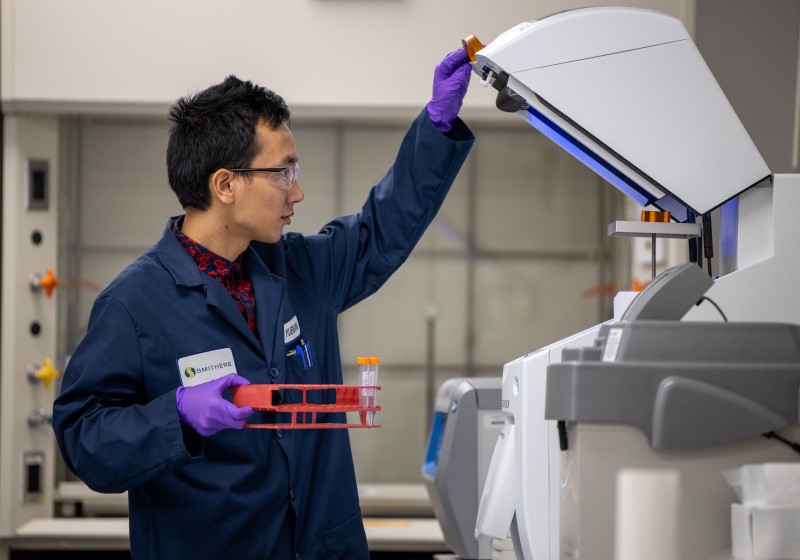Cannabis testing laboratory approved to start testing
The independent testing laboratory Smithers began testing cannabis on Monday, after being approved to do so by the Massachusetts Cannabis Control Commission.
Smithers received its final cannabis testing license and has passed its final inspections, the company said in a press release. The lab is now allowed to test medical and adult-use cannabis products for licensed cultivators and manufacturers in the state. The lab has operated at its Main Street location for years, and is just now beginning to test cannabis products.
The director of its cannabis testing lab, Eric Steele, did not specify how many new or existing employees the company will bring onto its cannabis testing operation, nor the lab’s testing capacity.
He said Smithers is now operating cannabis testing in two states, after the company acquired Origo Labs in Chicago.
“Smithers has been conducting independent testing for nearly 100 years for a variety of industries,” Steele said in an email. “Smithers brings scientific insights and operational excellence to this emerging testing market. The decades of regulatory compliance testing experience means that Smithers is the cannabis testing lab you can rely on for timely, quality, compliant product information.”
Smithers will begin cannabis testing weeks after the nearby John W. Decas Elementary School closed, which was an earlier point of contention in town. It is the only independent cannabis testing laboratory in Wareham at this time, though a number of other cannabis companies are also open in town.
The lab will test cannabis for cannabinoid potency, pesticides, heavy metals, microbiological contaminants and other materials, the release states.
Cannabis testing is required by the Cannabis Control Commission on each batch of product manufactured in Massachusetts — including flower, edibles, concentrates or vaporizer fluid. Each sample would have a volume of roughly a teaspoon, most of which would be destroyed during the testing process. Any remaining material must be made unusable.
Editors note: This story was updated with new information from Smithers on Feb. 15.
















